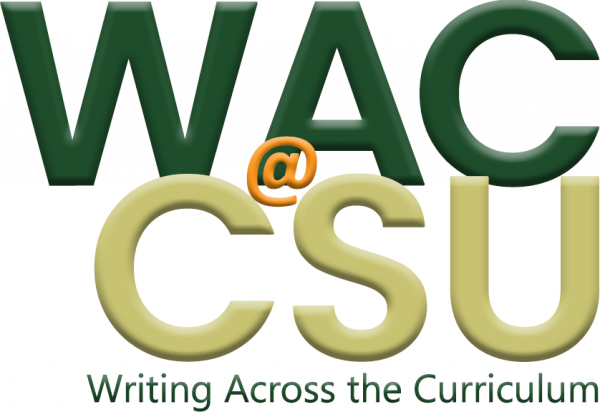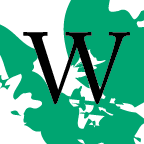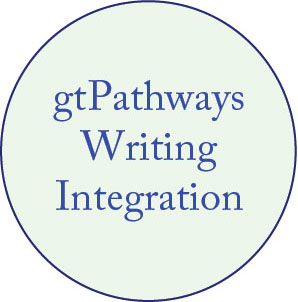Course Development Grants
 The deadline has passed for applications for our grant program for development of writing activities and assignments in courses across the disciplines in the 2024-25 academic year. The submission deadline was April 19, 2024. We are currently seeking funding for our third round of course development grants, which will support development in the 2025-26 academic year.
The deadline has passed for applications for our grant program for development of writing activities and assignments in courses across the disciplines in the 2024-25 academic year. The submission deadline was April 19, 2024. We are currently seeking funding for our third round of course development grants, which will support development in the 2025-26 academic year.
Support for course development includes a stipend of $1500 for the course instructor, materials development (such as instructional materials and web-based resources), and up to 30 hours of consultation with a writing specialist.
Application Deadline: TBD
Application Materials: We ask for a brief document. In fact, this might be the shortest grant application you've seen for a while. Your application should include:
- Your name and email address
- Your department and college
- Your course name and number
- The number of students in your course
- The types of writing assignments or activities you are interested in using in the course
- The anticipated outcomes of using those assignments or activities
Submission Process: Once the application process opens again, please send your application to Tim Amidon at tim.admidon@colostate.edu. In the meantime, if you have questions about the application process or about how you might use writing to enhance learning and engagement in your course, please contact Tim.
How Does the Course Development Process Work?
Learn how writing specialist Annie Halseth works with faculty in the disciplines:
As a writing specialist with the WAC Program at CSU, my goal is to support instructors seeking to integrate writing into existing curricula as a tool for critical thinking and student engagement. However, writing as a tool for student learning should not substantially increase the instructor's workload. Instead, a WAC approach to curriculum design will support student learning by providing multiple access points to course material and will provide instructors with more strategies for teaching discipline specific content.
For example, in the Spring 2024 semester, grant recipients worked with writing specialists to address specific areas of their curriculum that could be enhanced or supplemented by student writing. Grant recipient Pinar Omur-Ozbeck—Associate Professor of Civil Engineering—implemented a backwards design approach to the curriculum to increase student-student interactions through discussion boards and peer-reviewed writing assignments.
Learn how writing coach Robert Affeldt works with fellow instructors:
My first step in working with instructors is to develop a collaborative relationship in which we reflect on teaching strengths and areas for improvement and how our goals may be linked to course and disciplinary objectives. We consider how writing is not just a tool for demonstrating knowledge but a process of inquiry (a way of “coming to know”) which is critical for comprehending key concepts and thinking and reasoning within the discipline. We might consider ways to improve assignment design as well as incorporate informal assessments that provide real-time feedback about what is (or isn’t) working and ways to move learning communities forward in collective inquiry.
This past Spring 2024, I worked with a faculty member in Human Development and Family Studies (Introduction to Research Methods) on designing an assignment that more thoroughly engages students in identifying and entering “research gaps”—as well as on how to make peer reviewing more content-focused. Additionally, I collaborated with instructors in Political Science (a faculty member and a graduate teaching assistant) on new course curricula. In the first instance (Comparative Asian Politics), we refashioned a stand-alone book report into a collaborative posterboard session that scaffolds into a policy report. And in the second (a four-week online summer course on Current World Problems), we brainstormed ways of transforming an assignment on generative artificial intelligence into a tool for critical inquiry intimately linked to the course’s focus on discourses of discovery.
Funding for the WAC Course Development Grants is provided by the Institute for Learning and Teaching (TILT), the Office of the Provost and Executive Vice President, and the University Writing Center.
The WAC Clearinghouse
 Hosted by Colorado State, the WAC Clearinghouse is internationally recognized as the leading publisher supporting WAC. Key resources include:
Hosted by Colorado State, the WAC Clearinghouse is internationally recognized as the leading publisher supporting WAC. Key resources include:- An Introduction to WAC
- Open-access, peer-reviewed Books and Journals
- Open-access Textbooks
- The CompPile Database of Work in Writing Studies
- Search the Clearinghouse
The gtPathways Writing Integration Project
 The gtPathways Writing Integration Project is among the most ambitious WAC initiatives in the United States. It supports learning and critical thinking in select AUCC courses in the arts, humanities, and social sciences. To learn more, contact project director Kelly Bradbury.
The gtPathways Writing Integration Project is among the most ambitious WAC initiatives in the United States. It supports learning and critical thinking in select AUCC courses in the arts, humanities, and social sciences. To learn more, contact project director Kelly Bradbury.